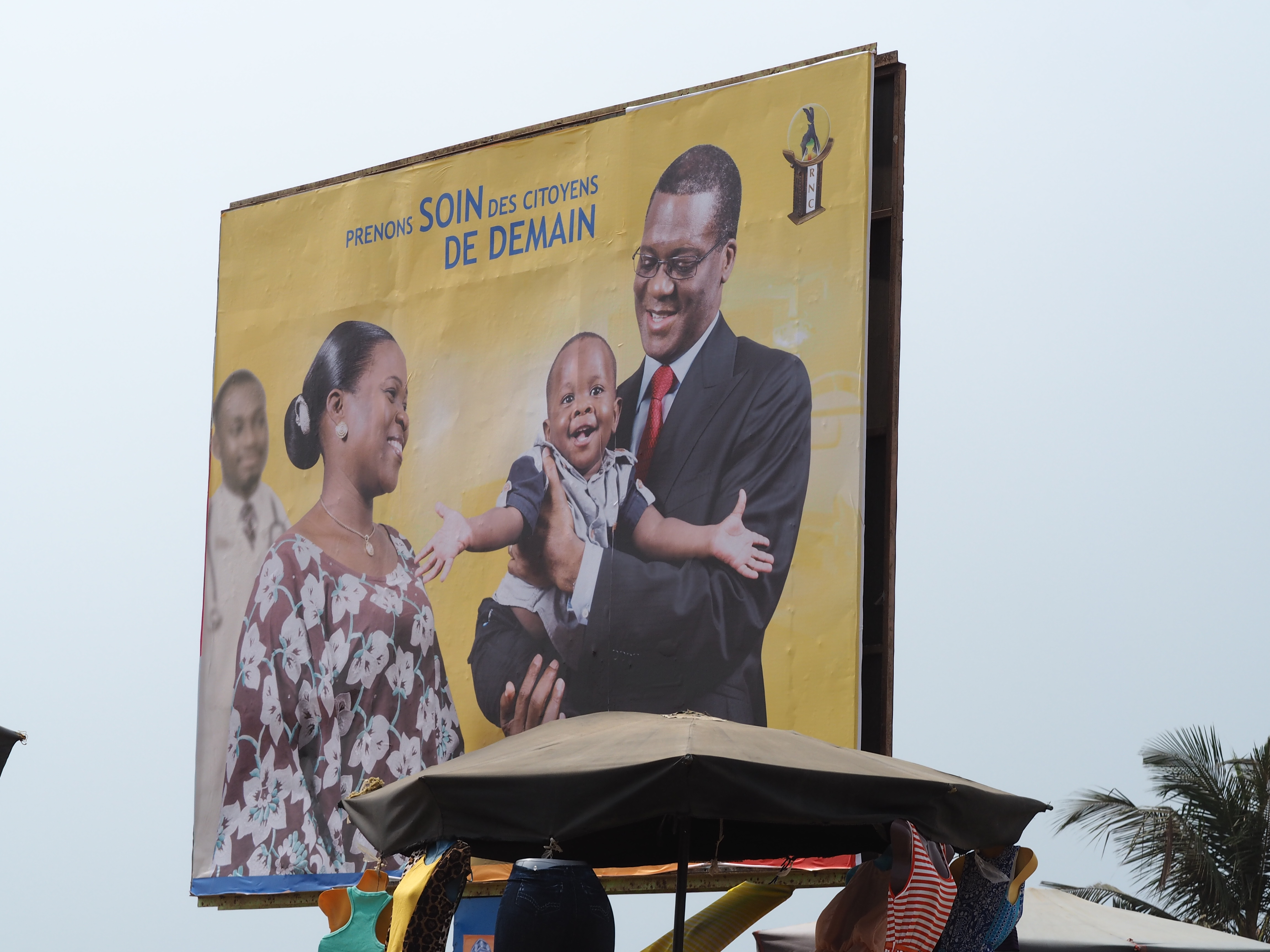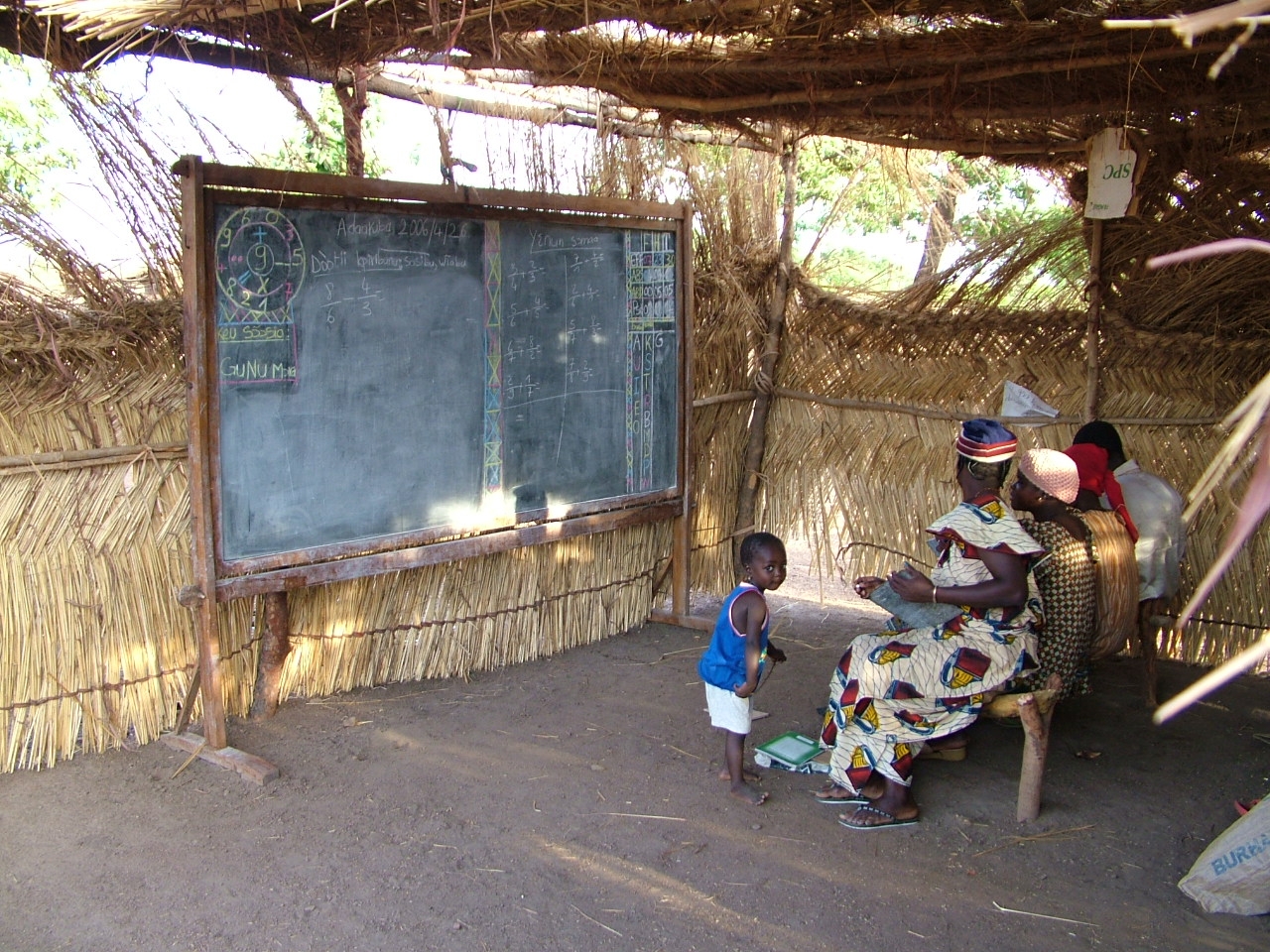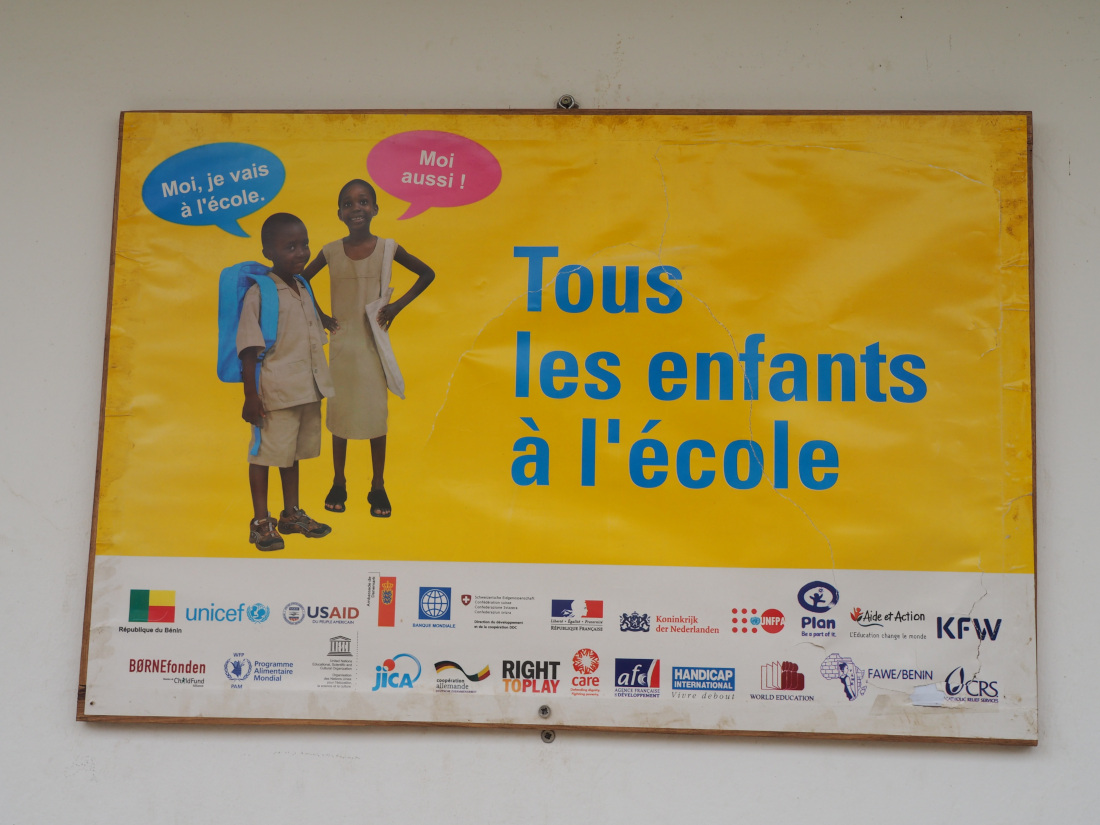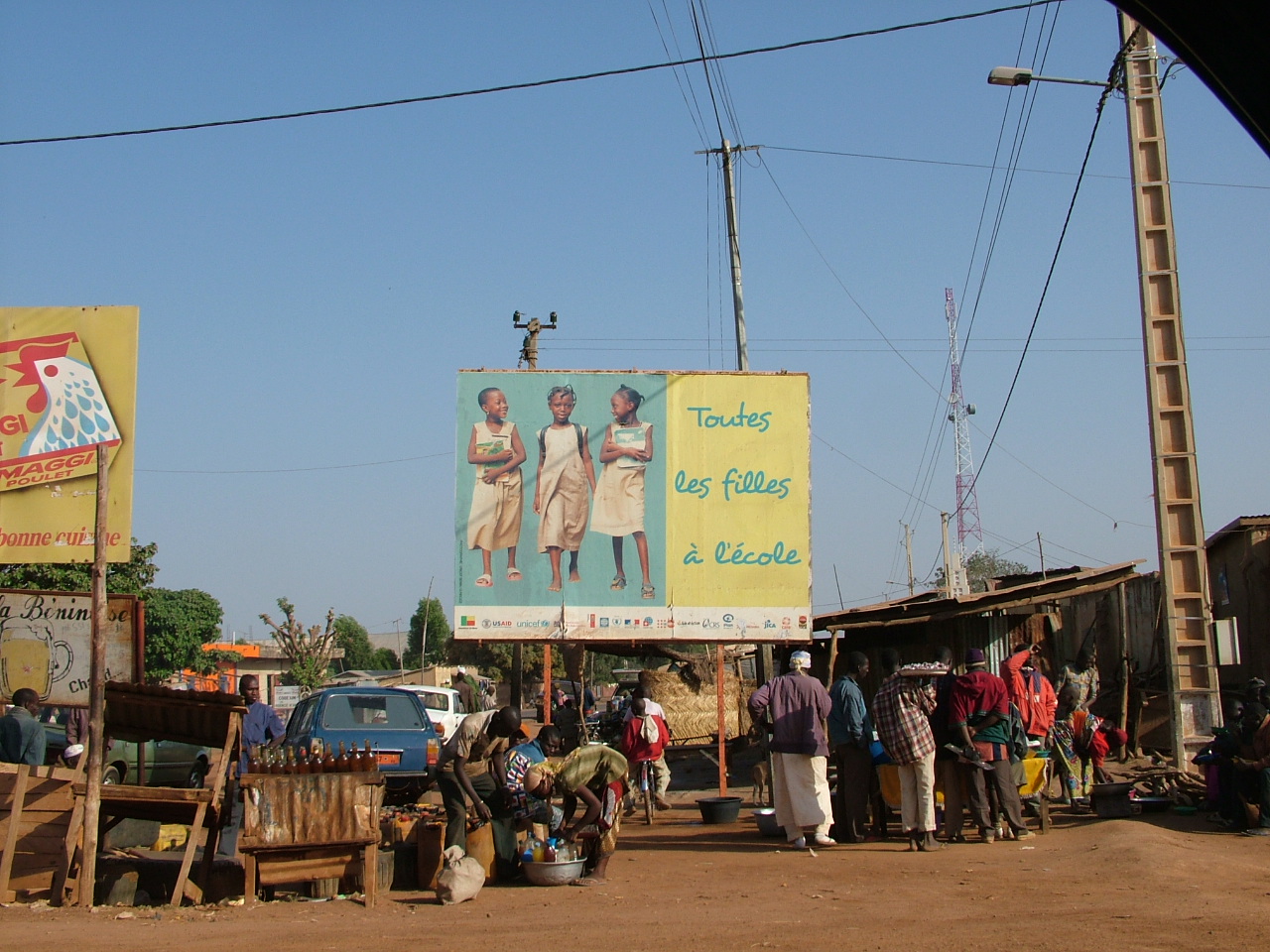Learning
Principal Investigators:
- Prof. Dr. Erdmute Alber, Social Anthropology
- Prof. Dr. Iris Clemens, Education Science (Spokesperson of the Research Section)
- Prof. Dr. Susanne Mühleisen, English Linguistics
- Prof. Dr. Rüdiger Seesemann, Islamic Studies
Members:
- Dr. Issifou Abou Moumouni, Social Anthropology
- Anna Madeleine Ayeh, Social Anthropology
- Dr. Britta Frede, Islamic Studies
- Prof. Dr. Carlos Kölbl, Psychology
- Dr. Franz Kogelmann, Islamic Studies
- Rebekka Krauß, Social Anthropology
- Dr Doris Löhr, African linguistics
- Prof. Dr. Heila Lotz-Sisitka, Environmental Learning
- Prof. Dr. Pierre Malgoubri, Linguistics
- Dr. Hassan J. Ndzovu, Religious Studies
- Dr. Anthony O. Okeregbe, Philosophy
- Dr. Cyriaque Paré, Communication Science
- Prof. Dr. Ulrich Rebstock, Islamic Studies
- Prof. Dr. Féridjou Emilie Sanon-Ouattara, Translation & English
- Prof. Dr. Gabriele Schrüfer, Didactics of Geography
- Issa Tamou, Educational Science
Ongoing research projects:
- Making a Living: Learning trajectories towards the ability to earn a livelihood - Alber, Clemens
- Learning beyond the classroom: Coping with illiteracy in urban literate environments in Bolivia and Benin - Alber, Kölbl
- Advice as practical epistemology in multilingual Africa - an analysis of expert /user and user/ user contexts in Cameroon - Mühleisen
- Toward an Islamic Cultural Archive (ICA): Building a Collaborative Database of Islamic Learning in Africa - Seesemann, Kogelmann, Rebstock
- "Multilingual African Learning Spaces: Translanguaging Practices in the Kenyan Classroom" - Mühleisen, Otundo
- "Mediated and Mediatization of Islamic Knowledge in Kenya: Educational Institutions, Media Technologies and Performative Aesthetics" - Hassan Ndzovu (Religious Studies, Moi University)
- Digitising Yorùbá Folktales for Animation and Value Education - Yusuff, Eleshin
- Indigenous Intelligence and Livelihoods in Africa: Knowledge Systems in Selected Communities in Kenya
- PLURA 2.0: Project Learning and Resource Platform Africa - Schrüfer, Löhr
- The Pre-Death Bequest of Gerd Spittler - Spittler
- Approaches to African Sonic Pedagogies - McConnachie, Okeregbe
- Islamic Popular Culture and Public Performance Practices - Ndzovu
- Regenerating Non-Formal Learning in Africa: Digitizing Folktales for Animation and Value Education - Ayodele Yusuff, Abisoye Eleshin, (University of Lagos) (09/2020-02/2022)
Activities
This RS seeks to realise an understanding of multiple and interrelated processes of learning in Africa and their connectedness beyond the continent, with particular reference to—and relevance for—the cluster’s key concepts of multiplicity and relationality. Our different but nonetheless related disciplinary perspectives will contribute to a joint understanding of the many roles that learning plays in the making of subjectivities, life-stages and gendered bodies, and the ways that these are framed through the unequal distribution of educational opportunities. We will also seek to analyse how learning itself is relationally constituted by — and at least partly co-constitutes — institutions, worldviews, communications, infrastructures, and transnational and transcontinental connections. Our understanding of learning goes beyond research approaches that limit their focus to formal educational settings such as schools or universities. Rather, we will address learning in a wider sense, encompassing all of the ways and processes in which knowledge and skills are transmitted, acquired and (re-)produced, regardless of institutional borders. We include private homes, schools, markets, media, streets, farms and international organisations in our considerations. We are interested in multiple learning processes and their inherent temporalities: in learning by doing; as a bodily practice; as a form of appropriation or mimesis, and as a mode of communication. Blurring the boundaries between artificial dichotomies such as formal / informal, institutional / non-institutional, modern / traditional, literate / illiterate, we will direct our interest to the interplay between various learning spaces and media. This relational perspective on learning processes in Africa and elsewhere will allow us to highlight their multiplicity and to analyse their entanglements, mutual coexistence, conditions of emergence, and the multiple ways in which learning processes combine in peoples’ lives. In order to get a sense of the manifold interrelations within the highly heterogeneous African educational landscape, we see a particular need for studying learners as embedded in their specific environments, and at the same time as producers of these environments through their networks of relations.
Objectives
Research will be organised along three lines of investigation: (a) communication, (b) biographies of learning, and (c) travelling concepts and practices.
Africa’s linguistic multiplicity constitutes both a challenge and a resource for the creation of learning spaces, whose concepts of education and knowledge acquisition are either those intrinsic to global networks stretching from Europe, the Americas and the Middle East, to South and Southeast Asia, or embedded in processes of adaptation and transformation within specific African contexts. This situation invites research into the conditions and challenges of communication as a constituent part of learning processes in multilingual settings, where the gap between the mostly European languages of formal instruction and the multiple African languages of socialisation requires acts of translation, adaptation and appropriation.
In our second line of investigation, biographies of learning, we will trace the multiplicities of learning processes via a focus on the learning trajectories of individuals. This is based on the understanding that individual life trajectories are always shaped by combinations of different modalities of learning (for instance apprenticeships, Qur’an schools, informal learning in the household), whether sequentially or simultaneously. Until now, less attention has been paid to the ways in which individuals move between different paths and modes of learning, and thus different epistemic orders, for example by simultaneously attending “secular” and religious schools. Here we will take inspiration from approaches that lay stress on processes of “timing”, particularly in relation to education.
In our third line of investigation, we will relate processes of learning and educational experiences in Africa to globally travelling concepts and practices that shape and produce varied formations and reformations of learning settings. The global “trading zones of knowledge” and the worldwide flows of educational concepts, ideas, and knowledge invite us to study the specific ways in which learning processes and settings emerge and change, and how travelling educational concepts and practices are negotiated in, and adapted to the African context.
Work Programme
With regard to our first focus, processes of communication in multilingual African learning spaces will provide challenges with regard to language choice, elaboration and corpus planning in institutional learning contexts. We will seek to investigate language choice in environments where the relationship between one or several ex-colonial as well as African languages are in competition or in parallel use for learning purposes. Another question relates to appropriations and adaptations of communicative practices in informal learning situations, such as advice-giving in both private and media contexts, which is based on the attribution of expert vs. learner/user roles in communicative interaction where norms and conventions are negotiated.
Methodologically inspired by the principle of “following the people” and by relational ethnography, we propose to explore individual biographies of learning. We will follow the directions and temporalities of the life paths of young individuals towards adulthood, and their multiple connectivities with learning processes. Here, instead of following conventional approaches to the study of life courses, we will view them as being constantly made and re-made in relational ways. Taking a processual and praxeological perspective, we aim to combine theoretical debates on learning in Africa with those concerning the life course, gender, kinship and work.
Those of our subprojects that are to explore travelling concepts and practices of learning will take a particular interest in global relationalities, and the ways in which the tension between the implementation of Euro-North-American models of schooling and more recent projects of “decolonising” education plays out in different national contexts, taking into account comparable processes in Asia and Latin America. Another key line of research pursued by this RS will be that of the rapidly changing landscape of higher Islamic education south of the Sahara. Over the past two decades, Muslim educationists and entrepreneurs have entered the booming private educational sector in all African countries with a sizable Muslim presence, producing new and highly gendered trajectories of learning that frequently merge “secular” and “religious” subjects.





